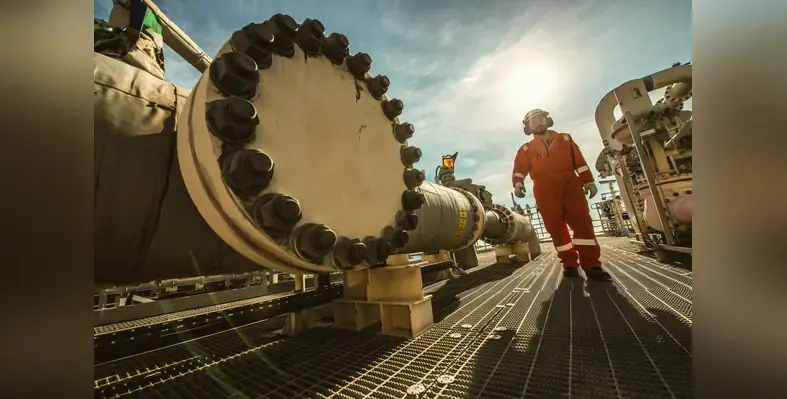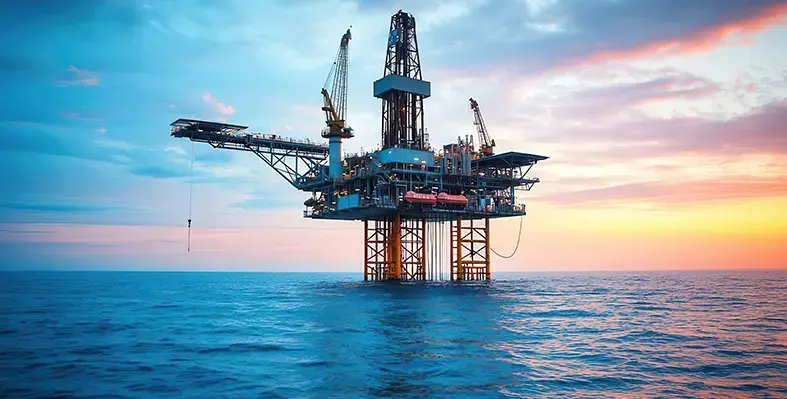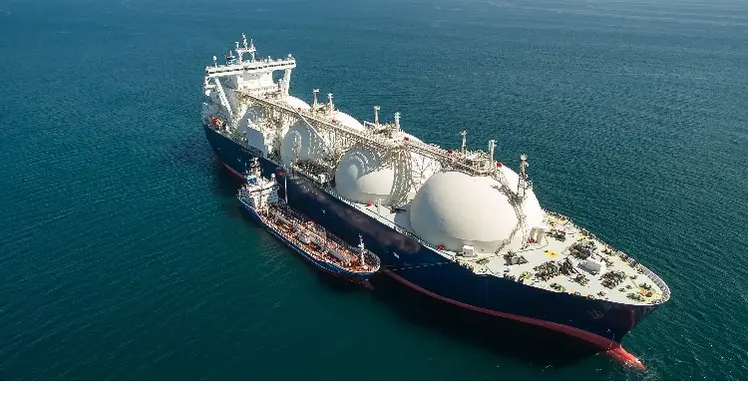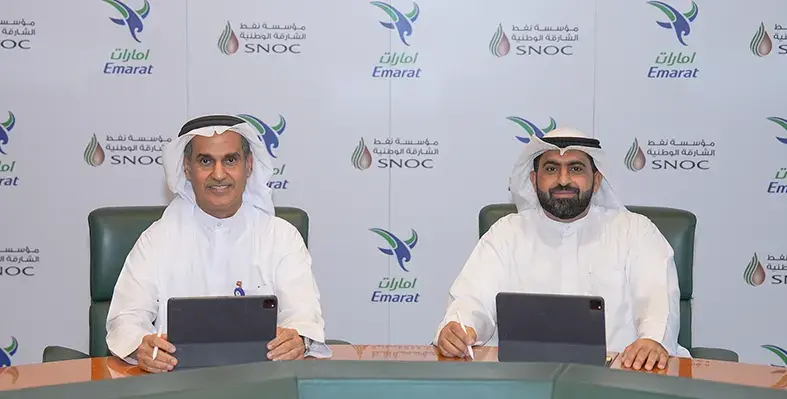
Oil and gas operators face a number of challenges this year. (Image source: KBR)
Paul Bansil, director of KBR’s international consulting business, outlines five major trends that will shape how oil and gas operators navigate the year ahead, as project developers allocate capital more selectively, face growing regulatory scrutiny and tackle the challenges of decarbonising existing assets
2026 will be defined by bankability, repurposing of existing infrastructure, lifetime planning and geopolitically driven divergence, Bansil says.
“In 2026, what the industry needs is certainty and bankability. This presents a firm footing to turn good ideas into investable, technically sound projects. The time pressure has always been there, but the current fiscal and geopolitical uncertainty makes timely decision-making an order of magnitude more challenging for operators, whether they are investing in new opportunities, modernising, repurposing or retiring assets.”
1. Bankability the decisive success factor
Bansil expects disciplined early-stage development planning to be one of the strongest determinants of project viability in 2026.
“Many energy transition schemes, including hydrogen, ammonia, fertiliser modernisation and refinery decarbonisation, continue to stall at the pre-FEED or FEED stage because owners have sometimes moved too quickly into engineering without first proving and stress-testing the commercial, regulatory and financial aspects of the business case,” he says.
Suitable fit-for-purpose early-phase opportunity screening will enable operators to focus valuable time and resources on those prospects most likely to progress through project sanction and into execution.
2. Sanction of undeveloped oil and gas projects
Continued responsible development of oil and gas projects is emerging as a recognised necessity if an orderly and prosperous energy transition is to be realised.
“We have seen a re-focus towards energy security in a number of areas. This will continue in 2026 as the demand for hydrocarbon fuels and petrochemical feedstock remains a fundamental cornerstone of our society in a global context,” comments Bansil.
“This is not about one thing versus another, but rather a pathway towards an orderly and sustainable transition built on confidence.”
3. Existing assets will act as a bridge to energy transition
A strong emphasis on repurposing and progressive decarbonisation of existing oil & gas, LNG, refining and petrochemical infrastructure is expected as operators seek practical and scalable transition pathways. This will allow affordable production while enabling development of emissions-reducing technologies for further cost-effective reductions in the future.
This includes adapting terminals to become multipurpose new energy molecule import terminals to handle a variety of energy carriers including ammonia for import and cracking to hydrogen as well as handling carbon dioxide for sequestration.
Modular LNG and FLNG solutions will remain a key building block in the gas supply chain.
At the same time, brownfield decarbonisation is growing across refineries and petrochemical sites, where operators are prioritising retrofit and circularity over greenfield developments. Operators are increasingly turning to lighter feedstocks, recovered gases, recycled hydrocarbons and low-carbon hydrogen options.
“Gas remains central to system stability and affordability,” Bansil adds. “But the real shift is the industry’s focus on making today’s assets cleaner and more flexible, rather than waiting for perfect conditions for new-build projects.”
4. Master planning and end-of-life responsibilities come to the fore
2026 will be the year when structured master planning takes centre stage, encompassing clear consideration of uncertainty. Investors and operators now expect integrated assessments of market outlooks, emissions pathways, technology options, CAPEX and OPEX priorities, and an understanding of regulatory requirements to support investment or re-investment decisions.
With hundreds of assets globally approaching critical decision points of life extension, repurposing or decommissioning, in many cases these decisions have become major strategic issues.
“Historically, there has been a perception that an asset simply stops producing and decommissioning begins, but the reality is far more complex,” Bansil says.
“If repurposing is not an option and decommissioning is the only path remaining, preparing wells, understanding waste streams, managing ageing equipment, many of which are hazardous, and sequencing work safely takes years, not months. The companies that plan early will be the ones who control cost and protect value.”
5. Geopolitically shaped pathways accelerate regional divergence
Transition pathways are expected to fragment further across regions.
The Middle East will continue to rely on fossil fuels for system resilience, with some forays into energy transition. Africa’s progress in LNG, gas-to-power and infrastructure development remains slower than its potential.
Europe is pressing ahead with green regulation, but many operators are struggling to keep pace with the rate of policy change. It is expected that investment in renewables will be maintained, but having a diverse energy portfolio that includes oil and gas production alongside low carbon technologies will allow a cost-effective method for successful emissions reduction in the future.
In North America, tariff pressures, sanctions and shifting trade patterns are influencing investment decisions across fuels and fertilisers. It is expected that there will be a decline in clean energy investments driven by a lack of incentives. Instead, extending asset life and tiebacks to existing facilities will be prevalent along with investment in previously undeveloped hydrocarbon opportunities.
“Across every major market, geopolitical forces now shape what is possible and at what pace,” Bansil concludes. “Our role is to bring clarity, grounded feasibility and practical pathways that assist clients in making the right value-accretive long-term decisions.”












